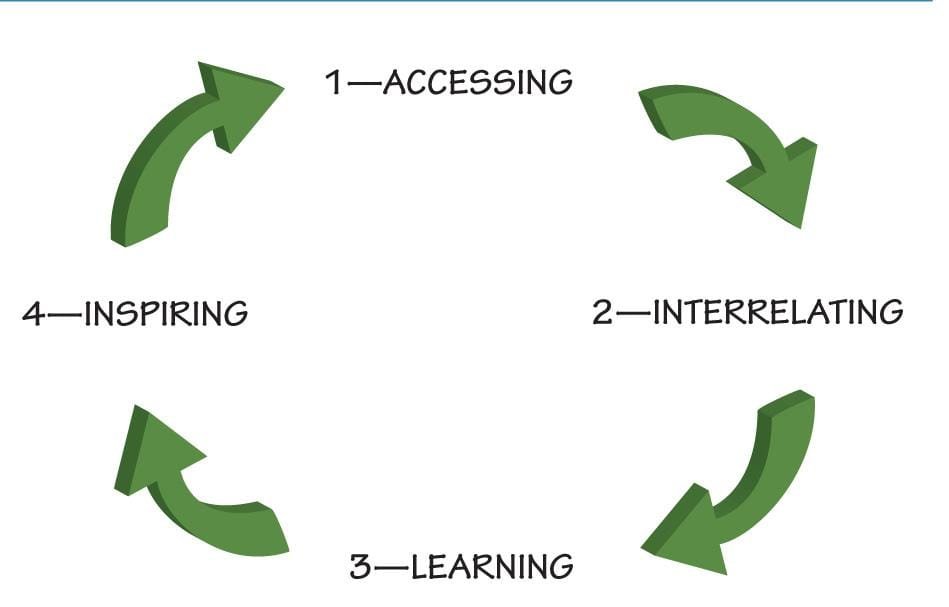Table of Contents
In an era marked by rapid technological advancement and the relentless quest for financial innovation, a new player has emerged on the global stage: cryptocurrency. As digital assets like Bitcoin and Ethereum gain traction, they challenge traditional notions of value exchange and currency stability. This transformation is not merely a financial phenomenon; it represents a broader shift that has the potential to redefine our economic landscape.
The rise of blockchain technology has enabled unprecedented levels of security, transparency, and decentralization. These characteristics are paving the way for new business models, driving efficiencies, and altering how transactions are processed. As we delve deeper into the implications of cryptocurrency, we uncover a tapestry woven with opportunities and challenges that will shape the future of how we conduct business and engage with one another.
Exploring the Paradigm Shift: The Role of Crypto in Economic Transformation
The integration of cryptocurrency into mainstream finance marks a profound shift in how economic transactions occur globally. This digital revolution offers individuals greater financial freedom and the ability to bypass traditional banking systems. With decentralized finance (DeFi) blooming, users can engage in lending, borrowing, and trading without intermediaries, fostering an environment of transparency and inclusivity.
As governments and institutions begin to acknowledge its influence, the ramifications of this digital currency extend beyond mere convenience. Expect an evolution in economic models where value is transferred faster and more efficiently, opening doors for innovation and enhancing global commerce. In this brave new world, we must prepare for the ups and downs of a financial landscape dramatically reshaped by blockchain technology.

Navigating Regulatory Landscapes: Building Compliance in a Decentralized World
The intersection of cryptocurrency and regulatory frameworks presents both challenges and opportunities for businesses navigating this evolving landscape. As decentralization gains traction, regulatory bodies worldwide are grappling with how to enforce compliance without stifling innovation. Key considerations include:
- Dynamic Regulations: Staying abreast of changing laws is crucial for sustainability.
- Global Compliance: Understanding different jurisdictions can mitigate risks.
- Transparency: Utilizing blockchain’s inherent transparency can foster trust and accountability.
Organizations must adopt robust compliance strategies that not only adhere to regulations but also create a culture of ethical practices. For many, this includes leveraging advanced technologies to streamline processes. A strategic approach may encompass:
| Strategy | Description |
|---|---|
| Risk Assessment | Identify potential compliance vulnerabilities. |
| Training Programs | Enhance employee awareness of regulations. |
| Regular Audits | Monitor compliance and adapt as needed. |

Empowering Financial Inclusion: The Promise of Cryptocurrency for Underserved Communities
Cryptocurrency is rapidly transforming the financial landscape, particularly for communities often overlooked by traditional banking systems. With a decentralized approach, individuals have access to secure transactions, lower fees, and greater financial autonomy. These attributes empower people in underserved regions, allowing them to bypass barriers such as high banking costs and lengthy approval processes. By harnessing the power of crypto, these communities can participate more fully in the global economy.
Innovative projects worldwide are focusing on creating tailored solutions that promote financial literacy and accessibility. For instance, mobile wallet apps and local crypto exchanges enable individuals to engage with their finances without needing a traditional bank account. This has led to a notable rise in peer-to-peer lending, remittances, and investment opportunities, bridging gaps that were previously insurmountable.

Fostering Innovation: How Blockchain Technology Drives Economic Growth and Sustainability
Blockchain technology fosters a new paradigm of economic growth by providing transparency and accountability across industries. Leveraging smart contracts, businesses can automate processes, reducing costs while enhancing operational efficiency. This innovation allows for faster transactions, which opens up avenues for microfinancing and peer-to-peer lending, fundamentally reshaping financial ecosystems in emerging markets.
Moreover, the decentralized nature of blockchain promotes sustainability by enabling traceable supply chains. Industries can track resource usage, reduce waste, and ensure ethical sourcing of materials, contributing to broader environmental goals. By incentivizing green practices through token economics, blockchain aligns profit motives with sustainable outcomes, propelling a more responsible future.
To Wrap It Up
As we stand on the brink of a new economic era, cryptocurrency is no longer just a speculative investment; it is a transformative force reshaping our financial landscape. The journey of understanding and integrating this technology is just beginning, and it presents both exciting opportunities and unique challenges.
Key aspects to consider include:
- Decentralization: Redefining power structures in finance and governance.
- Smart Contracts: Automating transactions and enhancing efficiency.
- Tokenization: Revolutionizing asset ownership and access.
While the potential of crypto is vast, navigating its complexities requires diligence and awareness.
Looking ahead, it’s essential to prepare for a world where digital currencies are prevalent. Continuous education, adaptation, and critical thinking will be crucial to harnessing the full potential of this evolution. As we decrypt the future, we invite you to explore and engage with this rapidly advancing frontier—after all, the next chapter in our economy may hinge on our understanding today.



